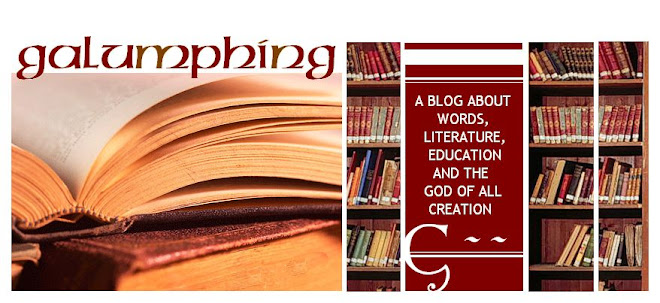 In my Classical Civilization course, I am currently teaching the unit on Greek drama. The origin of theatre (as we know it today) comes from the classical world. The original language of theatre used by the Greeks is still used today.
In my Classical Civilization course, I am currently teaching the unit on Greek drama. The origin of theatre (as we know it today) comes from the classical world. The original language of theatre used by the Greeks is still used today.The word theatre, for example, comes from the Greek word “theatron” (i.e., "seeing place"), which was the original location for dramatic productions. A more archaic word for actors, “thespians”, comes from the Athenian “father of theatre” by the name of Thespis. Even the legendary trilogies of Star Wars, Back to the Future, Pirates of the Caribbean and Indiana Jones (soon to be a quadrilogy... or tetralogy...?), are throwbacks to the original trilogies of Greek drama. Greek plays were originally crafted as trilogies (e.g., Sophocles’s Oedipus trilogy: Oedipus Rex, Oedipus at Colonus and Antigone.) George Lucas et al are paying homage to the Greek forebearers of the craft of visual story telling.
The value of studying Greek drama goes beyond simply celebrating the origins of drama, theatre, movies or trilogies. There is a great deal to learn from the observations of the human condition made by the Greek playwrights. Greek tragedies and comedies essentially ask the question, “how shall we live?” How do we function as individuals in a society, in a civilization? Dr. Peter Leithart, Fellow of Literature at New St. Andrews College, writes this about Greek drama: “written against the background of Homeric heroism, tragedy raises questions about how human beings, with all their ambitions and love of preeminence, can live together in a cohesive community.” The same question can be asked today about modern civilization.
As I commented on Dr. Haykin’s blog on Euripides, perhaps the greatest benefit of studying Greek literature is that you can see where pre-Christian attempts at morality fail to fully meet the needs of human beings. There are unpredictable gods, who deal with humanity inconsistently and in terrifying ways; men are often doomed to hopeless and damning futures, arbitrarily determined by the Fates. You can also see where the Greeks get it right—through insightful and careful observation they come to understand the truth of the humanity condition espoused clearly in Scripture.

I am currently teaching Euripides’ The Bacchae, which (among other things) is about the clash between ordered civilization and Dionysian chaos. Dionysus is a vindictive and unpredictable god who tears down and unsettles human civilization; “terror” (not biblical fear) is the beginning of Dionysian wisdom. I am all the more thankful for the faithful, merciful and constant God of truth and wisdom. Our God does what He says He would do; He is unchanging! He is the God who “builds up” and “establishes” and “creates”… a God of order and peace.







